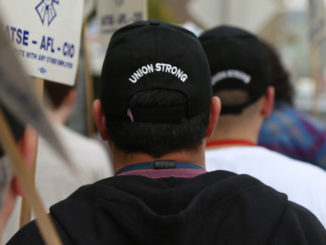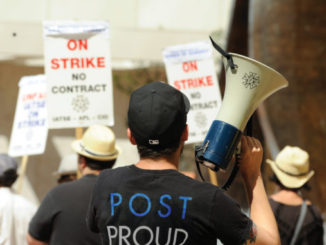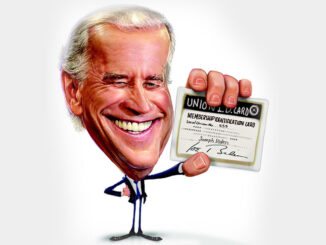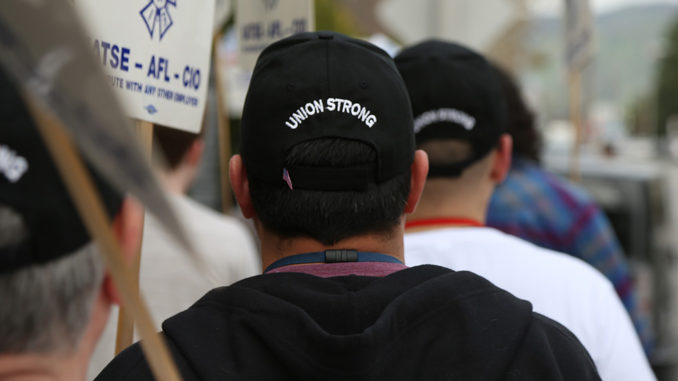
by Rob Callahan
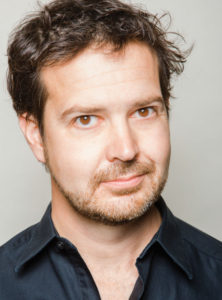
A little over two years ago, the Editors Guild hosted “Reality Check: A Town-Hall Discussion of Post-Production Workplace Issues in Unscripted Television.” The Reality Check forum took place a little less than a year after the difficult IATSE strike to organize The Biggest Loser in November of 2010. The Biggest Loser campaign was a hard-fought but ultimately successful struggle that would later prove a watershed moment in the effort to win union benefits and protections for crews working in reality TV.
For our discussion, a standing-room-only crowd filled the Guild’s Los Angeles training room on August 30, 2011. Editors and assistant editors, Guild members and non-members alike, came to participate in a lively conversation about the labor that goes into crafting compelling stories from raw footage. The discussion touched upon a wide array of topics, chief among which were the difficulties and disadvantages particular to working in a sector of the industry which was overwhelmingly non-union: the onerous hours, often unpaid, demanded of post-production crews; the poor pay and limited opportunities for advancement for assistant editors; the lack of employer-provided health benefits; and the uncertainties of retirement.
Much has happened since that 2011 forum. Two years later, most work in unscripted television remains non-union, but the efforts to win IATSE contracts for reality TV employees have gained significant momentum and have achieved some dramatic victories. Three of the genre’s dominant production companies — Fremantle, Shine America (formerly Reveille) and Endemol — have agreed to IATSE term deals, meaning that all of their productions will be made under union contracts. A wide range of specific shows — ranging from blue-chip broadcast network properties such as Hell’s Kitchen to new programs for cable like Summer Camp — have also signed deals. In the past year, about 50 unscripted projects have become newly union shows.
Increasingly, employers in this sector of the industry have begun to negotiate and sign IATSE contracts pre-emptively, before their crews walk off the job to demand them. In other instances, though — including the strike of the Swamp People editorial staff earlier this year — crews have interrupted work and, in so doing, provided employers with powerful reminders of the strength their employees have when they stand together.
The discussion touched upon a wide array of topics, chief among which were the difficulties and disadvantages particular to working in a sector of the industry which was overwhelmingly non-union.
We have made important progress in the past couple of years, but we know that we cannot maintain a movement just by looking in the rearview mirror at how far we have come; we must focus upon how much further we still have to travel. Although the IATSE and the Editors Guild have made and widened our inroads into unscripted television, far too much of the industry remains non-union. Too many of our members working in reality TV struggle to maintain their union hours for pension and health benefits, and too many would-be members have not yet had the opportunity to work union.
In charting the roads ahead, we know we must be guided by a simple and self-evident principle: We will only continue to improve working conditions in reality TV when reality TV employees themselves continue to take responsibility for making change happen.
I was recently talking to an editor who attended our Reality Check town hall two years ago. When he came to the 2011 forum, he was a recent arrival to Los Angeles and was still trying to establish himself in the LA market. He has since built a strong reputation in town, works consistently, and is a Guild member. But finding enough union jobs to earn benefits continues to prove challenging. In the course of our conversation, he said something I thought made a lot of sense about the necessity for those working in the genre to take responsibility for improving their jobs.
“As editors, we shape and craft story and character,” he said. “Whether consciously or unconsciously, we do the same thing with our careers, with the goals we set, the decisions we make and the working conditions we accept or reject. People, whether they’re union members or not, should take a more active, rather than passive, role in shaping their careers.”
Increasingly, employers in this sector of the industry have begun to negotiate and sign IATSE contracts pre-emptively, before their crews walk off the job to demand them.
With a view to building upon recent momentum in winning contracts in unscripted TV, the Guild will host another town hall for members and prospective members working in the genre. We invite those interested to attend “Shaping Our Reality: Improving Working Conditions for Post-Production Employees in Unscripted Television.” The event will be held at 8:00 p.m. Wednesday, November 13, in the Training Room of the Guild’s Los Angeles offices. To reserve a spot on the guest list, RSVP to RealityTV@editorsguild.com.
Whether or not you are able to attend the upcoming town hall, whether you are working in reality TV or elsewhere in post-production, if you are working for a non-union employer, I encourage you to talk to an organizer. If you are in the Los Angeles area, contact Preston Johnson, our LA-based organizer, at 323-978-1084. If you are employed anywhere else in the US, you can reach me at 323-978-1078.
Such conversations, whether in public town-hall meetings or in private phone calls, represent important initial steps in exercising our power to reshape our workplaces.



